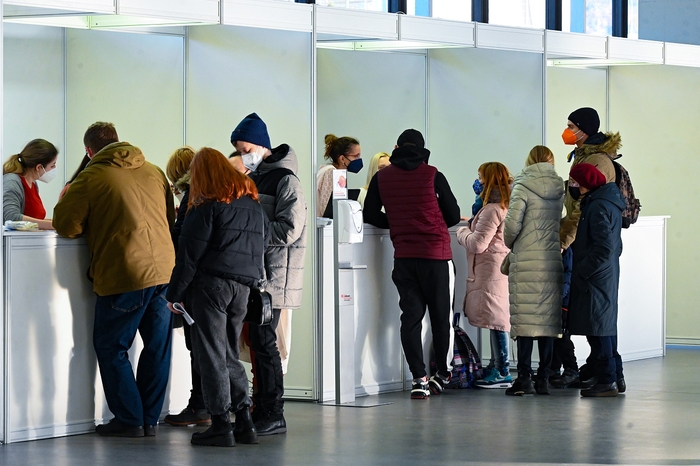War refugees from Ukraine in the Czech Republic are living mostly in smaller flats, hotels and hostels, and often lack sufficient space, freedom and privacy, according to a survey conducted by PAQ Research and released on Tuesday.
Half of those refugees living in hostels and hotels have to share toilet facilities, and they mostly do not have their own kitchens or the freedom to leave and return to their accommodation facilities when they want.
Since Russia attacked Ukraine on 24 February, the Czech Republic has granted temporary protection visas to more than 400,000 Ukrainian refugees. Many of them are thought to have subsequently left the country. Interior Minister Vit Rakusan (STAN) said last week that there were under 300,000 Ukrainian refugees still in the country.
The PAQ Research survey found that 54 percent of refugees live in cramped conditions, with less than six square metres per person at their disposal. Only a quarter of refugees in the Czech Republic live in standard housing with a sufficient residential area and their own toilets, according to the survey.
Almost half of refugees live in flats and houses that do not meet the normal housing standards, and about one-third of them are accommodated in non-residential facilities, such as hotels (9 percent) and hostels (16 percent).
In total, only two-thirds of refugees have their own toilets, just over a half have their own kitchens, and 84 percent have their own keys so they can leave their accommodation freely.
The situation in hostels and hotels is worse, as just 28 percent of refugees who live in such facilities have their own keys. A half of refugees share toilets with other inhabitants and only a few have their own kitchens.
According to PAQ Research, the state should primarily encourage standard housing for refugees, as hostels, dormitories and similar facilities could lead to their social exclusion. “The state should make its support for lodging conditional on minimum quality standards,” said Martina Kavanova, one of the authors of the report.
The government subsidises the provision of free housing to refugees from Ukraine with CZK 5,000 to 15,000 per flat, depending on the number of refugees accommodated, and CZK 3,000 to 9,000 per month for offering a room. This support should continue at least until the end of the year, but should be reduced gradually, according to PAQ Research.
“It may be CZK 5,000 for the first accommodated person, but CZK 12,000 for three people,” said Daniel Prokop, Director of PAQ Research. Moreover, state support should go to currently unused flats and sections of houses, so as not to limit the offer for the Czech population, he added.
PAQ Research conducted the survey on a sample of more than 3,700 refugees from Ukraine from 1,300 households from 20 June to 13 July, in cooperation with the Institute of Sociology of the Czech Academy of Sciences (AV CR).
On 13 July, the Labour and Social Affairs Ministry published a study collecting information about more than 50,000 refugees from Ukraine. The study found that working-age women make up 44 percent of refugees, children make up 35 percent, the elderly 4 percent and the remaining 17 percent are working-age men.
Some 44 percent of the respondents live in local solidarity households and a quarter in rental flats, 15 percent in hostels and 10 percent in hotels and boarding houses. More than a half of the Ukrainian refugees have found work in the Czech Republic.





